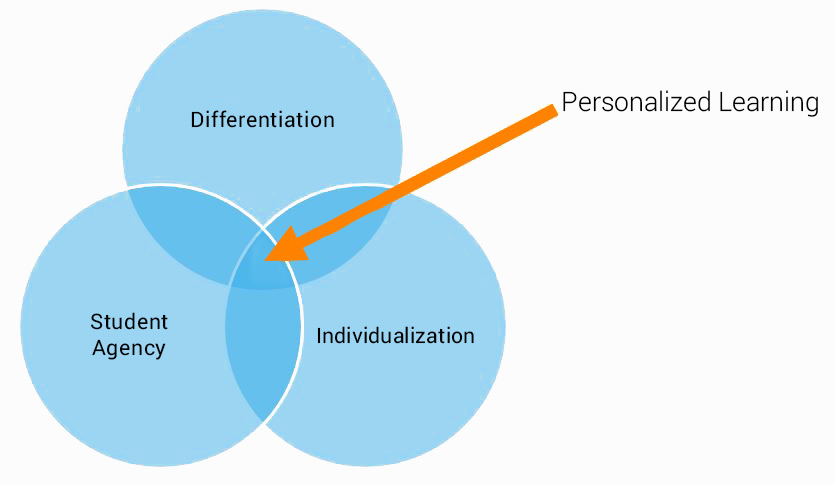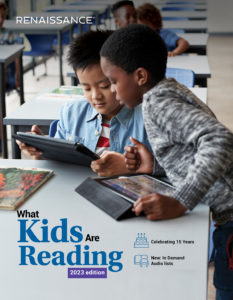May 4, 2017
A definition
As I have previously discussed, one of the most useful definitions of personalized learning comes from the U.S. Department of Education. It reads as follows:
Personalized learning refers to instruction in which the pace of learning and the instructional approach are optimized for the needs of each learner. Learning objectives, instructional approaches, and instructional content (and its sequencing) all may vary based on learner needs. In addition, learning activities are meaningful and relevant to learners, driven by their interests, and often self-initiated.
Personalized learning, then, is made up of three core elements:
- Differentiation
- Individualization (which involves competency or mastery-based learning)
- Student agency

A new approach?
Personalization is presented as a rather new approach for us, but is it truly? It is hailed as the antithesis to the “factory model” of education, but I assert that the factory model never truly existed. Certainly, much of a typical school day—students assigned to grades based on ages and a regimented schedule—is adapted from factories, but the moment a teacher responds to a student’s need or question or reviews content in a different way, the factory model is shattered.
The machines at work in a factory neither respond to nor adapt for irregularities in their raw materials. On the other hand, teachers have always engaged in efforts to respond to students’ needs; however, they could only go so far. Required courses had to be completed in the allotted days, and there was only so much adaption possible as the machines marched on.
So, what is truly new about personalized learning? Differentiation? No, we’ve been dealing with those efforts for nearly two decades. Student agency? Well, the term is certainly new, but when you probe deeper you will find many connections to formative assessment, meta-cognitive strategies, and goal-setting, though that’s a topic for another blog post.
Individualization
At the end of the day, I contend that the truly new element of personalized learning is individualization, which for our purposes here I will treat as synonymous with competency- or mastery-based learning.
Culatta (2016) describes individualization as “learning experiences in which the pace of learning is adjusted to meet the needs of individual students, focusing on the ‘when’ of personalized learning.” He notes that “in individualized learning, all students go through the same experience, but they move on at their own pace.”
In individualization, we see something truly new. Prior to these discussions, course counts, Carnegie units, graduation requirements, hours of contact, and seat time have been at the center of our consideration. Now conversations are shifting to “mastery,” “outcomes,” and “competency-based learning.”
In a widely viewed TED talk (shown below), Sal Khan elaborates on this significant shift, noting that “when you artificially constrain how long and when you have to do something,” as we have with allotted days for any given class or course, you “pretty much ensure a variable outcome” that manifest as grades. Under these dynamics, a student can barely pass a course (master very little) and yet receive full credit. The emphasis is far more on time than it is on mastery.
Individualization, then, makes tremendous sense—focusing on mastery rather than seat time. But if we accept this, much of the structure of school as we know it unravels. The bell schedules and course counts go out the window and are replaced with mastery models, clear outcomes, flexible schedules and resources, and redefined teacher roles.
A fundamental shift
Are you ready for this brave new world? What do you think about this fundamental shift? If you’ve already started work in this area, please share what you have accomplished and the challenges you have faced.
References
Office of Educational Technology, U.S. Department of Education (2016). “Future Ready Learning: Reimagining the Role of Technology in Education.” National Education Technology Plan.
Culatta, R. (2016, March 21). What Are You Talking About?! The Need for Common Language Around Personalized Learning. [Web log post]. Retrieved from http://er.educause.edu/articles/2016/3/what-are-you-talking-about-the-need-for-common-language-around-personalized-learning.
Khan, S. (2016, September 26). Let’s teach for mastery – not test scores. [Video file] Retrieved from https://www.youtube.com/watch?v=-MTRxRO5SRA.


